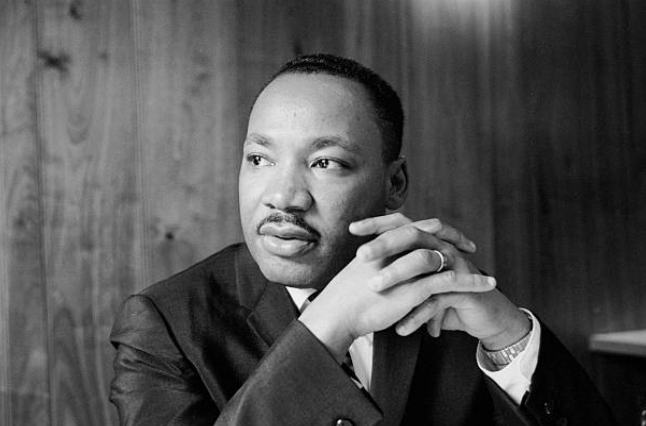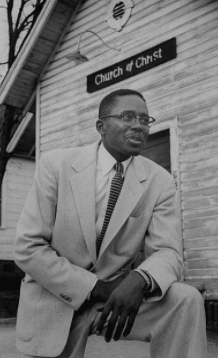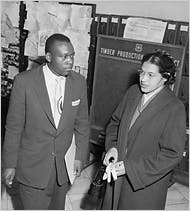Immediate Impact
Martin Luther King Jr.
Following Rosa Parks' arrest the African Americans in the town of Montgomery, Alabama participated in a 13-month long boycott of the bus system. Martin Luther King emerged on the scene as the boycott's leader delivering a speech in Holt Street Baptist Church to thousands of people urging them to continue to protest nonviolently.

[Flip Schulke Archives, 1966]
“The year-old protest against city buses is officially called off, and the Negro citizens of Montgomery are urged to return to the buses tomorrow morning on a non-segregated basis” - Martin Luther King (December 20, 1956)

Fred Gray
[Cravens, 1956]
Fred Gray and Charles Langford "challenged the Alabama state statutes and Montgomery, Alabama, city ordinances requiring segregation on Montgomery buses." The case became known as Browder v. Gayle and went all the way up to the Supreme Court. On June 5, 1956, the District Court ruled segregation on buses unconstitutional, and on November 13, 1956, the Supreme Court affirmed the District Court's decision. On December 20, 1956, the order for integrated buses arrived in Montgomery and King along with the Montgomery Improvement Association agreed to end the 381-day boycott.

Charles Langford and Rosa
[Bettman, February 1965]
Supreme Court Ruling
"There is no rational basis upon which the separate but equal doctrine can be validly applied to public carrier transportation within the City of Montgomery and it's police jurisdiction. We hold the statutes and ordinances requiring segregation of the white and colored races on the motor buses of a common carrier of passengers in the City of Montgomery and it's police jurisdiction violate the due process and equal protection of the law clauses of the fourteenth amendment to the constitution of the United States."
Penelope Torres and Kaylee Bahler ~ Senior Group Website ~ Word Count: 1154 ~ Media Minutes: 3:50 ~ Process Paper: 429 Words